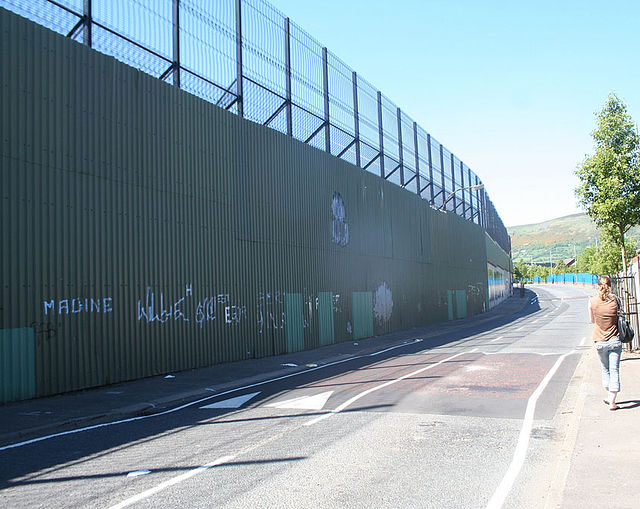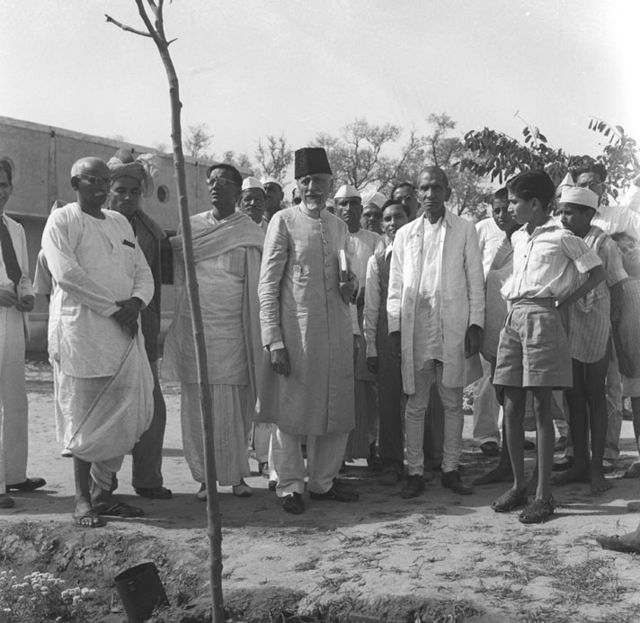Religious segregation is the separation of people according to their religion. The term has been applied to cases of religious-based segregation which occurs as a social phenomenon, as well as segregation which arises from laws, whether they are explicit or implicit.
Two separate doors (one for Jews, and one for Christians) on a house in the town of Endingen, Switzerland
A "peace line" in Belfast, Northern Ireland, 2010
Road sign on a highway into Mecca, stating that one direction is "Muslims only" while another direction is "obligatory for non-Muslims". Religious police are stationed beyond the turnoff on the main road to prevent non-Muslims from entering Mecca. Non-Muslims may enter Medina, but must keep distance from the Al-Masjid al-Nabawi.
Opposition to the Partition of India
Opposition to the Partition of India was widespread in British India in the 20th century and it continues to remain a talking point in South Asian politics. Those who opposed it often adhered to the doctrine of composite nationalism in the Indian subcontinent. The Hindu, Christian, Anglo-Indian, Parsi and Sikh communities were largely opposed to the Partition of India, as were many Muslims.
Khudai Khidmatgar leader Khan Abdul Ghaffar Khan and Mahatma Gandhi, both belonging to the Indian National Congress, strongly opposed the partition of India, citing the fact that both Muslims and Hindus lived together peacefully for centuries and shared a common history in the country.
First Session of All-India Jamhur Muslim League, which was established by Maghfoor Ahmad Ajazi to support a united India (1940).
Maulana Abul Kalam Azad, a key player in the Indian independence movement, stated in India Wins Freedom that "as a Muslim, I for one am not prepared for a moment to give up my right to treat the whole of India as my domain and share in the shaping of its political and economic life. To me it seems a sure sign of cowardice to give up what is my patrimony and content myself with a mere fragment of it." He argued that if India were divided into two states, "there would remain three and half crores of Muslims scattered in small minorities all over the land. With 17 per cent in UP, 12 per cent in Bihar and 9 per cent in Madras, they will be weaker than they are today in the Hindu majority provinces. They have had their homelands in these regions for almost a thousand years and built up well known centres of Muslim culture and civilisation there."

"To welcome Partition is to imply that people with different backgrounds and different blood-lines cannot live together in one nation, a regressive suggestion." —Rajmohan Gandhi, Professor at the Center for South Asian and Middle Eastern Studies of the University of Illinois at Urbana–Champaign







